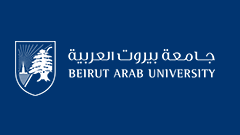Abstract
A dynamic urban form can be defined as emerging in the planning, and development of urban centers as a city where there is a defined perimeter, inside which lies a population that is self-sufficient supporting by the technologies and economy within the city fully employs the population, the services, and cultural infrastructure within the city are sufficient to supply for the population in the cities. One of the most significant driving forces of change in any urban system is population development. This randomness in growth causes an imbalance in the civil system through environmental problems on the life system that change year after year with the emergence of environmental, health, and economic problems. In addition to the revolutions in economic development and technology, rapid urban growth can be defined by the development of suburban expansion and city center regeneration. The main aim is to challenge the static nature of traditional urban planning processes and practices to look at the potential benefits of developing cities with a focus on technology, urban layout, ecology, sustainability in Lebanon-Tripoli Saki Al-Shemaly. This research approach to futuristic strategies design based on live problems, rearrangement urban city’s zoning, design multi-function buildings, protecting occupant health and improving employee productivity to reach the Quality-of-Life Efficient Land-Use, Preservation Efficient, Transportation Management and Efficient Use of Resources to evolve and adapt to the changes, and demands of the future city. The city must grow upward or downward if the urban population swells.
Keywords
Urban Form, Urban Health, Eco-City, Informal Settlement, Infrastructure
Disciplines
Architecture | Urban, Community and Regional Planning
Recommended Citation
Wehbe, Ayman
(2021)
"EXPLORING A NEW URBAN STRATEGY TO ORGANIZE THE INFORMAL SETTLEMENTS IN TRIPOLI,"
Architecture and Planning Journal (APJ): Vol. 27:
Iss.
2, Article 7.
DOI: https://doi.org/10.54729/2789-8547.1138

